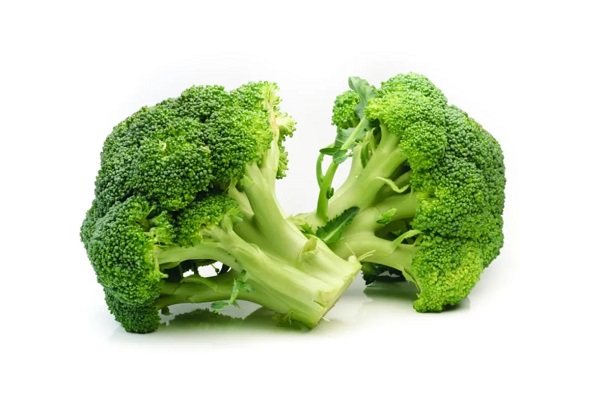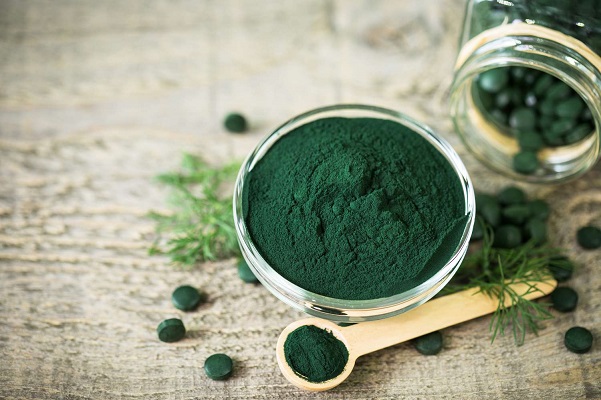On This Page
Overview
Nutritional value and necessary vitamins and minerals are found in plants. The multiple health advantages of broccoli, one of the plant-based vegetables, make it a superfood. Brassica oleracea is the scientific name for broccoli. It is also among the healthiest and most promising cruciferous veggies. Inflammatory disorders like cancer and diabetes can be prevented in large part by the antioxidants in broccoli. Additionally, broccoli enhances liver health and helps the body detoxify. Learn about the potential advantages of broccoli for your general health.
Synonyms of Broccoli
- Brassica oleracea
- Cruciferous plant
- Crucifer
Nutritional Facts of Broccoli
| Energy: | 34 kcal |
| Carbohydrates: | 6.64 g |
| Sugars: | 1.7 g |
| Dietary fiber: | 2.6 g |
| Fat: | 0.37 g |
| Protein: | 2.82 g |
Phytochemical Constituents of Broccoli
- Glucosinolates
- Carotenoids
- Tocopherols
- Flavonoids
Therapeutic Uses of Broccoli
- Regulate Blood Sugar Levels
In addition to being anti-diabetic, broccoli is a powerhouse of antioxidants and necessary minerals.
The broccoli sprout is the healthiest variety. Broccoli sprouts’ antioxidants lessen cell stress and help to repair pancreatic cells. It thus boosts insulin secretion and lowers blood glucose levels.
- Cure Respiratory ailments
Asthma and Other allergies (and respiratory) diseases can both be treated with broccoli. The antioxidant enzymes in the human airways are released when the vegetable’s sulforaphane is consumed, protecting us from free radicals and other pollutants we breathe in every day.
- Boosts Digestion
Fiber and good gut flora guarantee intestinal health. The antioxidants and fiber found in broccoli are abundant. Therefore, fiber-rich foods like broccoli aid in enhancing gut health and preventing constipation.
Additionally, broccoli has anti-inflammatory characteristics that improve bowel regularity and restore the colon’s healthy resident flora.
- Stimulates Heart Health
One way of broccoli enhances heart health is by keeping the blood vessels healthy. The broccoli’s sulforaphane can stop and even undo harm to blood vessel linings brought on by persistent sugar problems.
- Liver Protection
Extracts from broccoli help the body rid itself of toxins and safeguard the liver. Additionally, it lessens the effects of bilirubin and serum enzymes, which could be harmful to your liver.
Oxidative stress is brought on by carbon tetrachloride, which also creates reactive free radicals. Therefore, liver damage could result. But broccoli aids in the liver’s fight against carbon tetrachloride.
- Enables Skin Health
The antioxidants enhance skin health and aid in age reduction. The vegetable’s vitamin C helps to produce collagen, which ultimately results in younger-looking skin.
Glucoraphanin, an ingredient in broccoli, is transformed into sulforaphane, which promotes good skin and helps with skin restoration. Thus, consuming broccoli speeds up skin renewal and provides your skin with a radiant, healthy glow.
Ayurvedic Aspects of Broccoli
Vitamin C is found more abundant in broccoli than in any citrus fruit. Additionally, it contains a lot of sulfur, iron, and vitamin B. It is healthy for Pitta and Kapha. Vata can also be tempered by it. Broccoli is especially advised throughout the summer or on hot days. It shields the skin from drying out and aids in preventing gas buildup. Broccoli contains a significant quantity of vata-balancing qualities. It serves as an appetizer or Deepan. As a result, it lessens Ama and boosts Pachan thus treating indigestion.
Daily Dose: Half a cup (78 grams) of cooked broccoli should be recommended per day

Have A Health Issue?
Consult Online
- Dr. Sahil Gupta (B.A.M.S., M.H.A.)
Ayurvedic Allergy Specialist
CEO & Founder of IAFA®
Side Effects of Broccoli
- Allergies
Salicylate, a substance found in broccoli, can trigger allergic reactions in certain people, including breathing difficulties, asthma, headaches, nasal congestion, skin rashes, itching, and stomach pain.
People who are sensitive to broccoli are also prone to be sensitive to other cruciferous vegetables, such as cauliflower, turnips, cabbage, etc.
If you are allergic to broccoli or other cruciferous vegetables, stay away from them.
- Lowers blood pressure
Because the potassium in broccoli relaxes blood vessels and enhances blood circulation, it aids in controlling high blood pressure.
However, too much potassium can lower blood pressure below the usual range and lead to other symptoms like dehydration, nausea, dizziness, fainting, poor focus, impaired vision, pale skin, and others.
Conclusion
One of the few vegetables with a wealth of critical elements and significant therapeutic potential is broccoli.
Additionally, it is low in calories and rich in fiber, minerals, vitamins, and antioxidants, all of which have several positive health effects. Consequently, you ought to include broccoli in your diet. But in certain people, it could result in negative side effects like allergies and hypothyroidism.
Consult a health expert right away if you have broccoli and are having an adverse reaction. You can also consult with Dr. Gupta at IAFA if you have to manage your allergy or side effects through the ayurvedic approach.
References
- https://en.wikipedia.org/wiki/Broccoli
- https://www.ncbi.nlm.nih.gov/pmc/articles/PMC4100739/#:~:text=Broccoli%20is%20an%20abundant%20source,19%5D%E2%80%93%5B21%5D.








